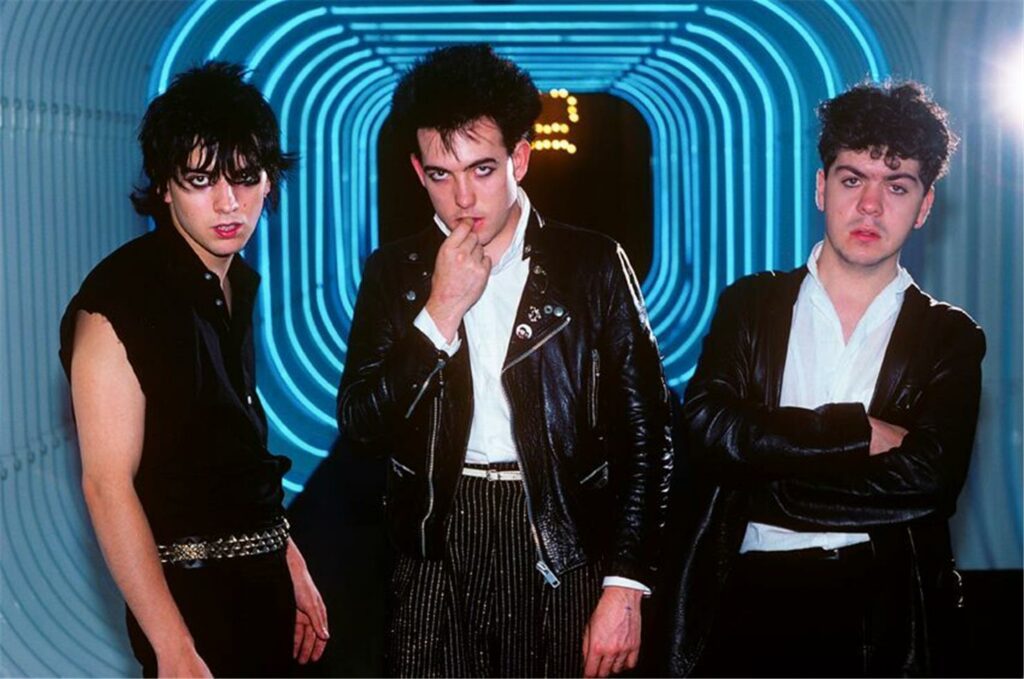With Faith, The Cure Crafted a Dark, Vivid Album


It began with upbeat demos recorded in his parents’ dining room, Robert Smith recalled in a 2004 Rolling Stone interview, but the sound of The Cure’s third album would change a couple weeks later when he wrote “The Funeral Party” and “All Cats Are Grey” in one night.
Faith, released on April 14, 1981, marked the middle of the era that would come to define The Cure. Sandwiched between Seventeen Seconds and Pornography, it was part of a three-album stretch that, in the annals of alternative music history, would be remembered for both inner-band turmoil and the darker sound that resulted from it.
It’s also during this trifecta of albums that The Cure earned its reputation as a “goth” band, a label Smith rejected and one that, really, is only true insomuch as they became a gateway band for later generations of young people who would fall down the goth rabbit hole.
As for Faith, I’m hesitant to use the word “goth” to describe it. Goth is pulling up your best pair of ripped fishnets, teasing your hair and heading out to the club with your friends to turn pirouettes on the dance floor. Goth is dark and dramatic, but it’s still fun.
Faith, on the other hand, is not a fun album. It is the nights when you flake on your friends and stay in bed, staring at the ceiling because the world is just too much. Faith is heavy. And, unlike so many other Cure albums, its weight isn’t offset by lighter moments. There’s no “Love Cats.” No “Just Like Heaven.” No “Lovesong” or “Friday I’m in Love.” There’s not even a creepy “Lullaby.” The closest thing to a moment of levity on this album is “Primary,” Faith’s only single, which is a dance song in much the same way that Joy Division’s now-classic single “Love Will Tear Us Apart” is. Yeah, you can move to it (there’s even a 12″ extended version of “Primary” that’s killer), but it becomes a dance where you’re frantically shaking off angst.
In 2011, Smith described the album in an interview with The Guardian. “Faith was the sound of extreme desolation because that’s how we felt at the time,” he said.
It was a difficult period for The Cure, at this point a trio consisting of Smith, bassist Simon Gallup and drummer Lol Tolhurst. In a 1993 interview with Record Collector, Tolhurst notes that, at around the time of the making of Faith, his mother was sick and Smith’s grandmother had died. He also noted the bandmates’ mutual history with religion – both Smith and Tolhurst attended Catholic school – impacted the material. “Organised religion tells you one thing, then as life unfolds you realise that there’s an individual interpretation you can put on events,” Tolhurst told Record Collector.
In a 1981 Trouser Press interview, Smith describes Faith as a response to the themes on Seventeen Seconds. “Everybody I know has gone through the emotional trauma of Seventeen Seconds, which is learning you can’t trust people as implicitly as you’d thought when you were younger,” he said. “Faith is about having gone through that and trying to discover what you can have faith in, the loss of innocence and growing older, as in ‘Primary,’ and trying to sort out what your life’s about.”
All of that is reflected in the sound of Faith; it’s a vivid album in both its lyrics and sound, from the religious imagery of “The Holy Hour,” to the dirge “The Funeral Party” to the allusions to Mervyn Peake’s mid-20th century fantasy series Gormenghast in “The Drowned Man.” Like all of The Cure’s best albums, it drops listeners into a series of scenes that manifest clearly with each song, even when you aren’t familiar with the specific points of reference.
Faith didn’t garner widespread critical acclaim upon its release. In that 1981 Trouser Press interview, Smith counters accusations that it was a “self-indulgent” album, noting that the reason why it took a longer time to record than previous albums was a bit beyond their control. “It took so long because we kept getting thrown out of studios in favor of ‘more important’ people, and once we lost the mood we never quite got back the atmosphere we wanted,” he revealed.
Several years later, Smith readdressed the critics in a 1987 Spin interview. “Listening to our records like Pornography and Faith, I still think they’re good. They weren’t just the whims of this brat, even though they were horribly slandered,” he said. “It’s good that there’s been very little I would change. That gives you confidence.”
In time, Faith didn’t quite become the fan favorite that its follow-up, Pornography, did, but there are certainly people – myself included – who would argue that it’s one of the band’s finest albums. It’s an essential album in the band’s catalog, one best reserved for the days when you can play it start-to-finish and let yourself feel everything that’s packed within it.




